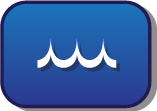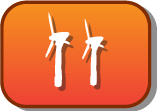Ocean Scientist Studying Coral Reefs
A conversation with . . .
Eric Hochberg
| Climate Kids: | Eric, tell us about your job. |
| Eric: | I’m really lucky—I get to ride around in boats and planes studying coral reefs! A few years ago, the way to do my kind of work was to use a boat. But when NASA’s CORAL project gets started, I will be studying the reefs from a special airplane. |
| CK: | Do you usually end up getting wet? |
| Eric: | Yes. There are instruments on the boat to observe the reefs, but usually I get to put on a snorkel and mask and dive in. If the ocean is tropical and warm, I don’t even need a wet suit. |
| CK: | Did you always like being around the water? |
| Eric: | Ever since I was a kid growing up in Florida. My dad and one of his friends loved going down to the Florida Keys to catch lobster. I started going with them and it wasn’t long before I realized that I really loved the ocean. |
| CK: | Does being a scientist keep you busy? |
| Eric: | You might be surprised how many different things we do. During the day I might be conducting research, publishing papers, or overseeing a lab. Of course, I spend lots of time doing data analysis and logistics for CORAL, my project for NASA. I also travel a lot, mostly to attend scientific conferences. |
| CK: | Did you study oceans in school? |
| Eric: | Sort of! I have a Bachelor’s degree in biology. A course I took in invertebrate zoology opened my eyes to marine biology as a potentially fun career. But when I graduated from college, my life took an unexpected detour—I moved to Taiwan for 3 years and taught English as a second language. |
| CK: | Wow, that’s a big change! |
| Eric: | Yep! It’s funny how life works out. It was through a friend I met in Taiwan that I heard about the University of Hawaii, where I went back to school for my advanced degree. Hawaii is where the world of oceanography started to inspire me—I saw that the Earth and her oceans are part of a huge interconnected system. |
| CK: | How did you get your job? |
| Eric: | After I finished college I started teaching in Hawaii, then I moved to Florida to be an assistant professor. Pretty soon I realized that I missed doing scientific research. As luck would have it, I saw an ad for a job called ‘Bermuda aquatic ecologist/biologist’ and I applied. And here I am, 5 years later! |
| CK: | Do you like it? |
| Eric: | It’s perfect for me. And I actually live right on the campus of the institute in a cute little cottage. It only takes me two minutes to walk to work! The nice thing about living so close is that I can go home for lunch. |
| CK: | What is your favorite part of your job? |
| Eric: | That has changed over time. It used to be going diving. Now my favorite part is doing the science itself—I really want to know the answers to science questions, especially about how coral reefs work. I guess that’s pretty nerdy, but I like it. |
| CK: | What would you tell someone who might want to become an ocean scientist? |
| Eric: | Just enjoy nature and follow your joy. As you explore your love of nature, you’ll want to do more and more—your interest will grow over time. If you do what you enjoy, it will lead you to new questions, then to finding the answers to those questions. |
| CK: | Do you have any hobbies? |
| Eric: | Yes, I’m a dad! Of course that’s more than just a hobby. Other things I enjoy are playing the guitar and watching American football. |












